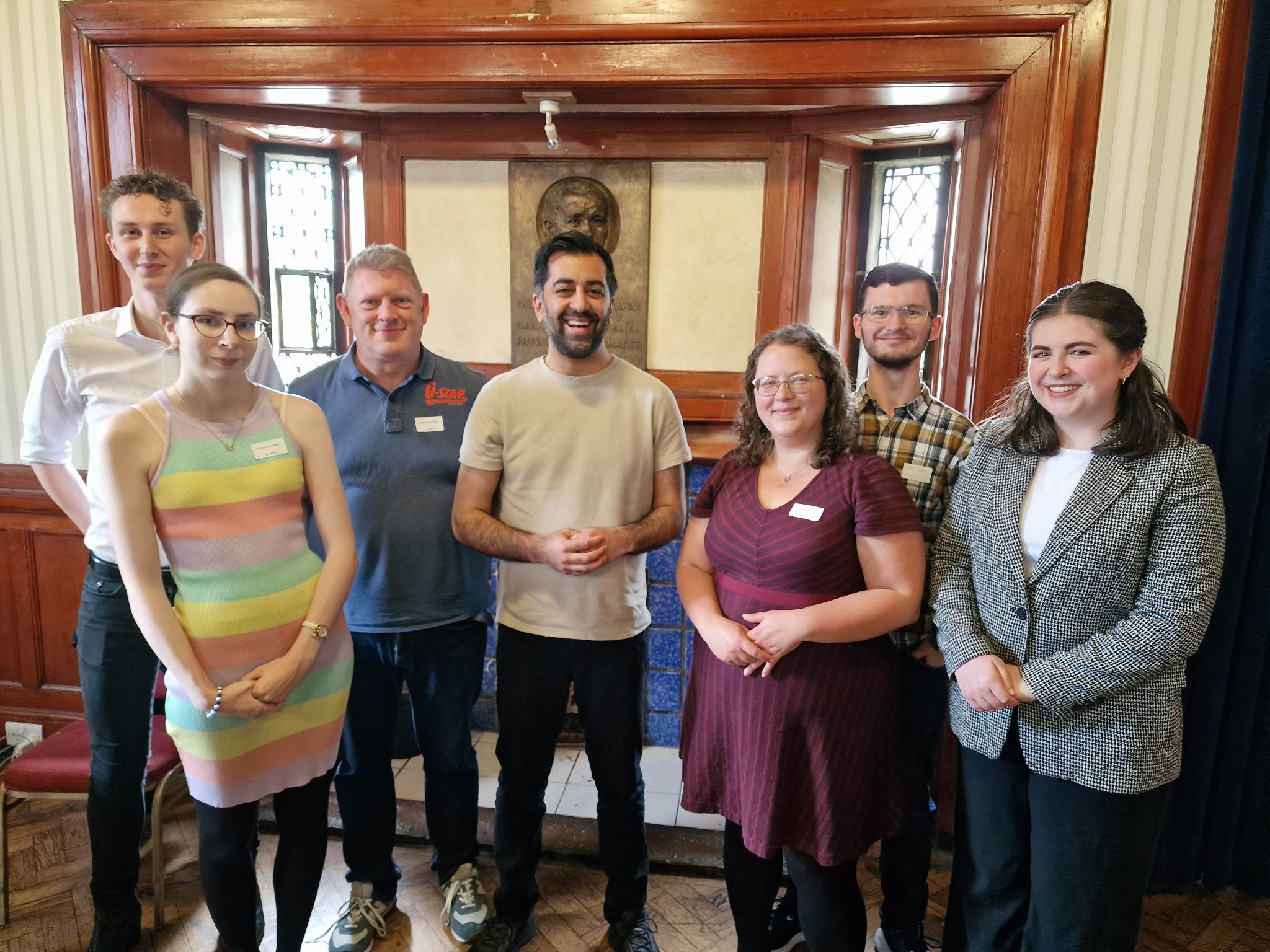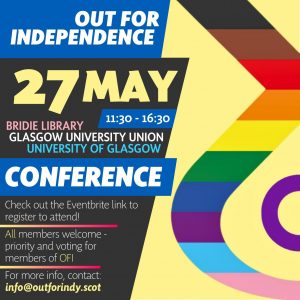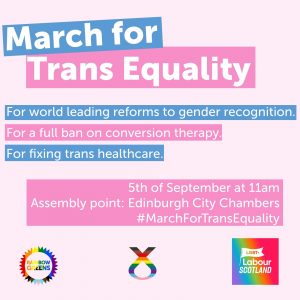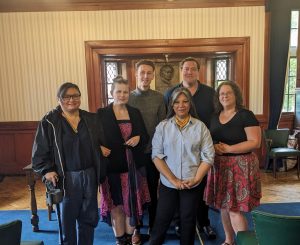We were thrilled to have our first real-life conference since 2019 this past weekend on Saturday 27 May, and honoured that First Minister Humza Yousaf joined us to give a talk and have a Q&A session with our members. We were moved by his recollections of his time at the University of Glasgow – where our conference was held – and his experiences of solidarity from the LGBTQ+ community in standing against Islamophobia and racism.
After the First Minister spoke, we had three sessions for debating resolutions. It was a busy day with an agenda packed with thoughtful policy ideas. The full text of each resolution can be found in our agenda here. Thank you to all of our speakers and everyone who took the time to write and submit a resolution.
In our first session, we had resolutions on the expansion of HIV testing in Scotland, surrogacy reform, and developing a strategy to end intimate and sexual violence against men and boys. All three resolutions passed by acclaim. There was important discussion of how, at present, Scotland is not on track to meet its commitment to eliminate HIV transmission by 2030, and that action is necessary to ensure we do not fall further behind. We discussed how surrogacy regulation in Scotland is out of date and that there is little in the way of legal protection for parents or voluntary surrogates, and lack of parity in access to IVF services. Finally, we noted that the 2021 SNP Holyrood manifesto had promised the development of a strategy to end intimate and sexual violence against men and boys, but that no action has been taken so far to make this a reality. This is an especially pressing issue for the LGBT+ community as recent research suggests that 1 in 4 gay and bisexual men in Scotland have experienced domestic abuse in the past 12 months.
After a break for tea, coffee, and pastries, we had our second session. In this session we had motions on sex work decriminalisation, rights and legal recognition for intersex Scots, and a motion about the governance review which, as it is an internal motion, will not be discussed here. These resolutions also passed by acclaim following thoughtful and passionate contributions. The motion on decriminalising sex work highlighted the issues around the ‘Nordic Model’ of criminalising buyers which has resulted in sex workers experiencing higher rates of violence in areas where it has been introduced, and pointed to the work of sex worker self-advocacy organisations who work for sex workers’ safety, health and wellbeing. Lastly, we discussed the current absence of legal protections for intersex Scots and Scots with variations in sex characteristics, who presently are not protected from coercive, unnecessary surgeries as infants and have no legal recognition as adults. This motion called for the creation of a working group to provide a platform for an I/VSC perspective and determine what action needs to be taken, as well as banning non-essential, non-consensual procedures on intersex minors.
In our final session, we had resolutions calling for the creation of a racial justice officer within the Out for Independence NEC, on policy around LGBTQ+ asylum seekers, and on Bi+ health, inclusion and wellbeing. All of these motions passed by acclaim. We discussed how important understanding intersectionality is to developing a truly inclusive organisation, and the urgency of creating stronger bonds between marginalised communities in the present environment. We agreed on the need to have a specific racial justice officer position to communicate that Out for Independence is an organisation that represents the entire LGBTQ+ community within the party. The motion on LGBTQ+ asylum seekers noted the present hostile environment for asylum seekers, especially in the wake of Westminster’s Nationality and Borders Act and the Illegal Migration Bill,noted the especially difficult position for LGBTQ+ asylum seekers in detention, and called for an end to detention of migrants and an appropriate framework for LGBTQ+ asylum seekers. Lastly, we noted that, despite the fact that recent data suggests that bi+ people make up nearly half of the LGBTQ+ community, that they often feel excluded from LGBTQ+ events, spaces, and services, and that bi+ populations also suffer significantly worse social and health outcomes than the lesbian and gay communities. We noted that while there is work to do in the community, it is also incumbent upon the party and the Scottish Government to ensure that when services are commissioned, funded, and publicised that they are explicitly Bi+ inclusive.
We want to thank everyone who came out and spent their Saturday with us, as well as everyone who worked hard to make the event such a success. Special thanks to the GUSNA executive committee for providing the beautiful venue and helping us organise and set up on the day. Our thanks also go to our First Minister for spending his time with us and to HQ staff for aiding us in facilitating our event. We’re looking forward to getting started with Pride season and seeing everyone at party conference.




